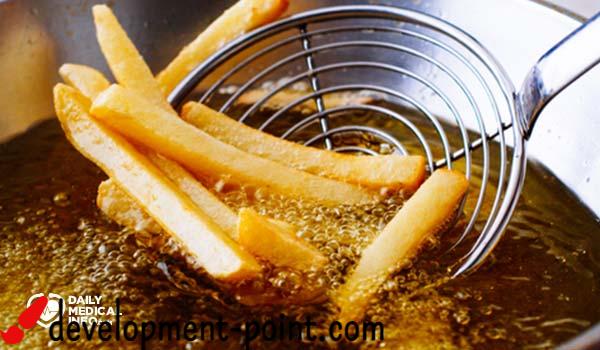Carob molasses: its benefits and harms, and how it works at home
Carob molasses is a thick, honey-like liquid with a sweet taste. Molasses is extracted from the dried fruits of the carob tree. Some people also use it as a substitute for chocolate, due to its sweet taste and many health benefits. Which we will learn about in the next article.
Carob molasses nutritional value
Molasses is rich in benefits, mainly because it is extracted from the dried fruits of the carob, which in itself is a wonderful natural source of many vitamins important for the health of the body, as it contains:
- Vitamin A.
- Vitamin B2, B3, B6 group.
It also contains fiber, protein, and vegetable carbohydrates, in addition to some important minerals, which are as follows:
- copper.
- calcium.
- manganese.
- potassium.
- magnesium.
- zinc.
- selenium.
- Iron.
Health benefits of carob molasses
Carob molasses derives its benefits from the benefits of carob fruits, as it can have the following benefits:
- Helps lower blood cholesterol.
- Reduces the risk of chronic diseases: because it is rich in antioxidants.
- Treats some digestive problems: such as stomach pain.
- Helps treat diarrhea.
- Helps promote heart health.
- Works to supply the body with energy.
- Helps to strengthen bones.
Benefits of carob molasses for hair
Mineral deficiency in the body is a direct cause of hair loss, so eating foods rich in minerals helps in promoting hair health and stopping hair loss. Molasses contains many important minerals for hair health, which are iron and calcium. So eating it may be beneficial for hair.
Does carob molasses increase weight?
There is no confirmed research or sources that it helps to gain weight, but molasses is generally rich in calories and sugars, so if you are trying to lose weight, do not add it to your food as a precaution.
Notice; We must emphasize that these benefits have been achieved through some research and studies, but there is still a need for more research to confirm them scientifically.
Carob molasses uses
Molasses is used in making many foods as a healthy sweetener as an alternative to sugar, such as:
- Cake.
- juices.
- the authorities.
- Pancake: It can be used as a substitute for honey.
- Sweetener for daily drinks: such as coffee and tea.
- You can also eat molasses with bread as an alternative to jam, adding a little tahini to enhance its taste.
How to make carob molasses
The method of preparing molasses from carob at home is simple and easy to apply, as you can do it by following these steps:
the ingredients
- 1 kilogram of carob pods.
- 2 liters of hot lukewarm water.
How to prepare
- Break the dried carob pods into small pieces, removing the cores from them.
- Wash the carob pieces well, then drain them from the water.
- In a deep bowl, put the carob pieces, then immerse it in hot water.
- Leave the carob soaked in the water overnight.
- The next day, filter the carob from the soaking water.
- In a blender, put the carob and grind it well to make a thick carob juice.
- Put the carob juice in a saucepan over the heat for 4 hours over medium heat, stirring occasionally.
- After the time has passed, the water in the carob juice has evaporated, and you have a thick, dark liquid with a honey-like consistency.
- Leave the molasses to cool completely, then filter it of any impurities using a clean piece of gauze.
- In a glass bottle, pour the molasses and keep it in the fridge.
Carob molasses damage
Carob molasses is safe to use for most people if it is eaten in moderation according to the statements of the American Food and Drug Administration, but excessive consumption may lead to some risks, which are as follows:
- Digestive problems.
- Allergic reaction: Carob allergy is rare, but it is possible, especially with people who are allergic to legumes. It is preferable to avoid eating any carob derivative.
Molasses may be unsafe for some people, including:
- Diabetics: because it is rich in calories and sugars.
- babies.
- Pregnant and breastfeeding women: As there are not enough scientific sources telling us how safe molasses consumption is for pregnant and breastfeeding women, so it is preferable to avoid it at those stages.

